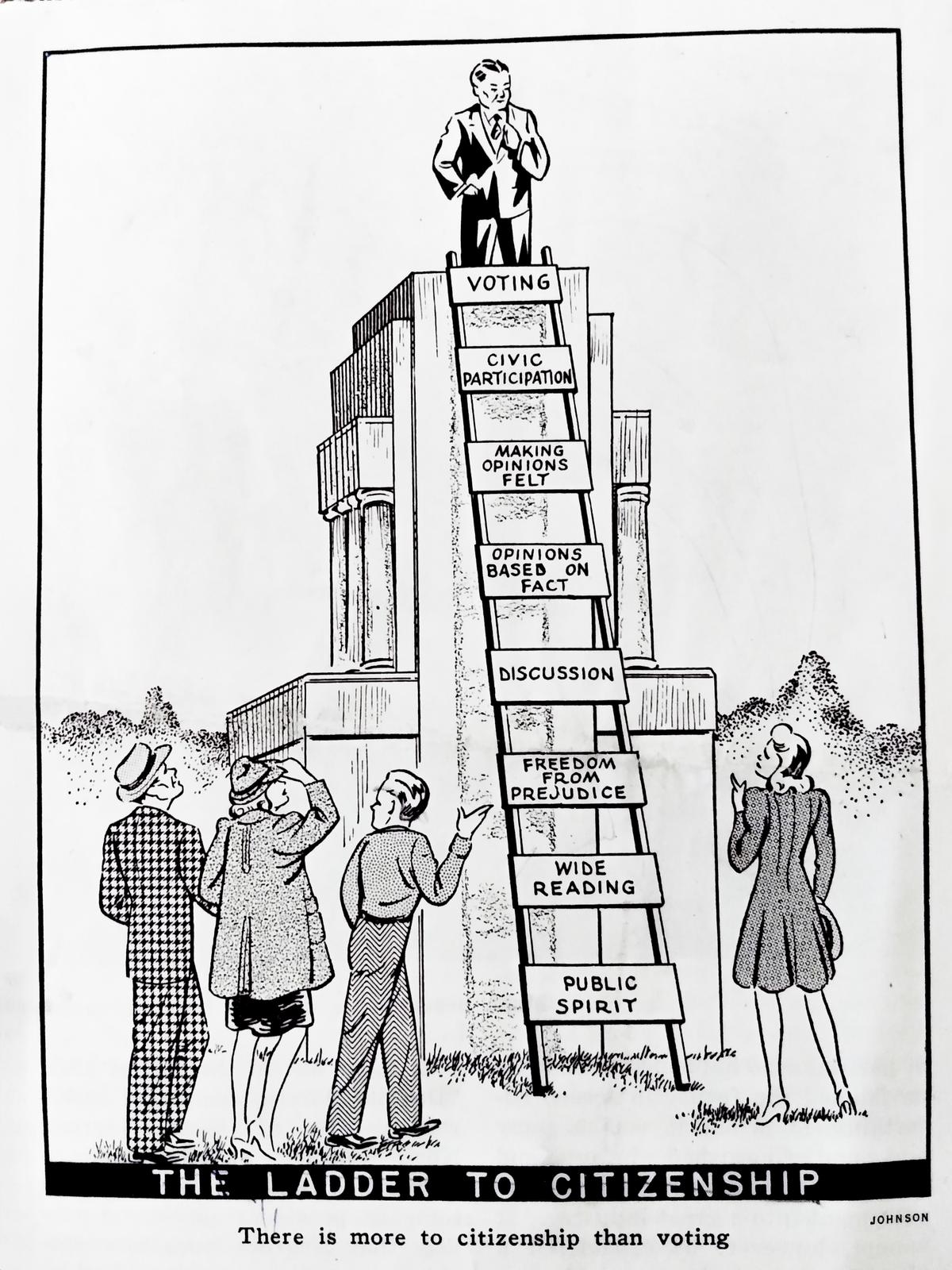While digging through a folder of items belonging to my grandmother during her high school years, I came across several copies of Weekly News Review, a periodical full of news items and current events apparently geared toward young students. Flipping to the back page of the Jan. 3, 1944 edition, the following cartoon caught my eye:

Courtesy of the author






